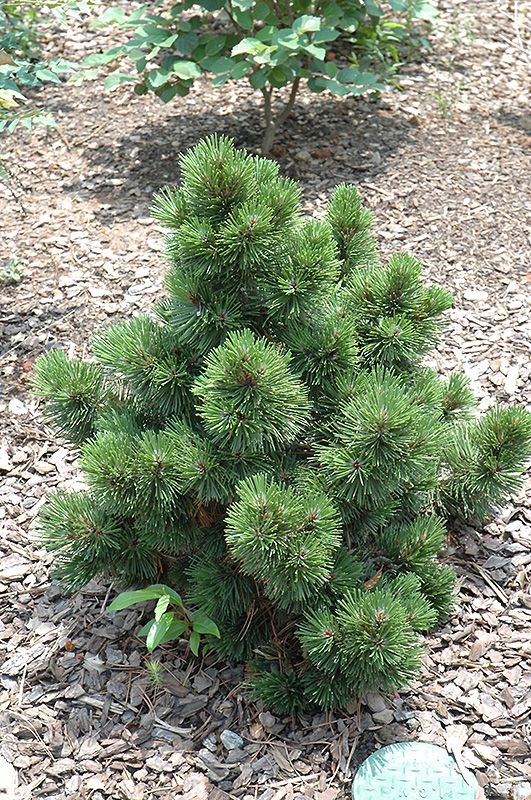>> Home
Irish Bell Bosnian Pine
Pinus heldreichii 'Irish Bell'
Height: 12 feet
Spread: 12 feet
Sunlight:
![]()
Hardiness Zone: 4
Other Names: Pinus leucodermis, Serbian Pine
Description:
A very slow growing conifer with a dense, fat, pyramidal form and short, dark green needles; dense and formal habit with little or no pruning; salt tolerant, and great disease resistance
Ornamental Features
Irish Bell Bosnian Pine is a dwarf conifer which is primarily valued in the landscape or garden for its distinctively pyramidal habit of growth. It has dark green evergreen foliage. The needles remain dark green throughout the winter. The rough brown bark and silver branches add an interesting dimension to the landscape.
Landscape Attributes
Irish Bell Bosnian Pine is a dense multi-stemmed evergreen shrub with a distinctive and refined pyramidal form. Its relatively fine texture sets it apart from other landscape plants with less refined foliage.
This is a relatively low maintenance shrub. When pruning is necessary, it is recommended to only trim back the new growth of the current season, other than to remove any dieback. It has no significant negative characteristics.
Irish Bell Bosnian Pine is recommended for the following landscape applications;
- Accent
- Vertical Accent
- Hedges/Screening
- General Garden Use
Planting & Growing
Irish Bell Bosnian Pine will grow to be about 12 feet tall at maturity, with a spread of 12 feet. It tends to fill out right to the ground and therefore doesn't necessarily require facer plants in front, and is suitable for planting under power lines. It grows at a slow rate, and under ideal conditions can be expected to live for 60 years or more.
This shrub should only be grown in full sunlight. It prefers dry to average moisture levels with very well-drained soil, and will often die in standing water. It is considered to be drought-tolerant, and thus makes an ideal choice for xeriscaping or the moisture-conserving landscape. It is not particular as to soil type, but has a definite preference for acidic soils, and is able to handle environmental salt. It is highly tolerant of urban pollution and will even thrive in inner city environments. This is a selected variety of a species not originally from North America.
